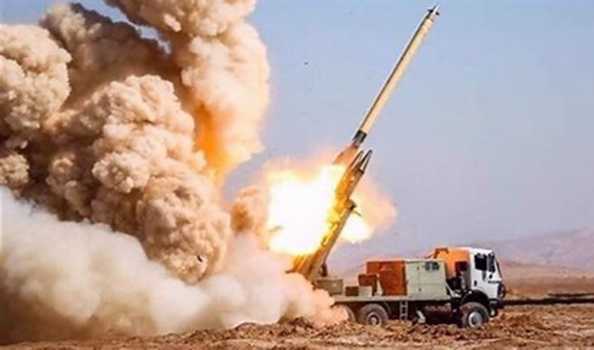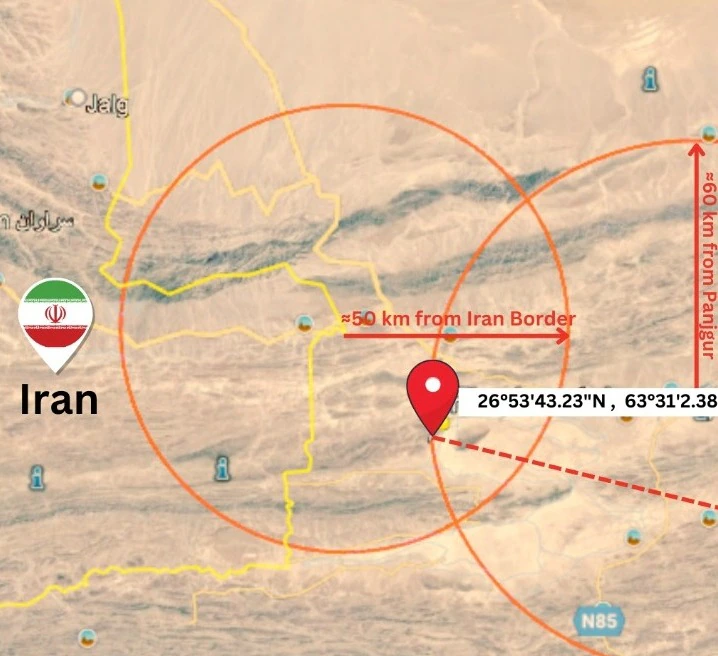
- The nefarious activities of Pakistan-based terrorist organizations in Iran unmistakably highlight Pakistan’s alarming status as a state sponsor of terrorism.
- India, having borne the brunt of Pakistan’s long-standing support for terrorism it becomes crucial for New Delhi to robustly reinforce its stance against Pakistan as a terror state.
- A resolute and coordinated approach is imperative to emphasize globally the urgent need to confront and neutralize the terrorism emanating from Pakistan.
In late December last year, Jaish ul-Adl, a Sunni militant group, carried out a deadly attack on an Iranian police post in Rusk, resulting in the tragic death of 12 Iranian police personnel. Fast forward to yesterday, and Iran responded with missile strikes inside Pakistan, exposing longstanding tensions over Baluch militancy and ethnic complexities.
The missile strikes coincided with meetings between Iran’s Foreign Minister and Pakistan’s caretaker Prime Minister at the Davos economic summit, raising speculation about potential communication regarding the strikes. This adds a new layer to the already intricate relations between Iran, Pakistan, and the Taliban, especially concerning Baluch militancy.
The situation becomes more complex considering the Afghan Taliban’s dual stance of both supporting and denouncing groups like Jaish ul-Adl. The ideological nature of Jaish further complicates matters, as the Taliban faces challenges balancing political interests against Islamist ideology, as seen in the ongoing debate over girls’ education.
For Pakistan, this event adds to the challenges it faces, including the internal struggle against extremist ideologies. The country’s nuclear power status didn’t deter Iran from targeting Jaish in Baluchistan, prompting questions about Pakistan’s strategic thinking and the effectiveness of nuclear deterrence.
This incident underscores that the Afghanistan-Pakistan theatre remains significant globally. Despite disagreements with the Taliban, Iran collaborates with the regime to prevent a return of Western military power to its borders.
Who are Jaish al-Adl?
Jaish al-Adl, translating to ‘Army of Justice’ in Arabic, is a Baloch Sunni Salafi separatist militant organization active in Southeastern Iran, near the porous Pakistan border. Established in 2012 by former members of Jundallah, its roots trace back to a weakened predecessor whose leader was executed in 2010.
The group’s primary objective is the independence of Iran’s Sistan and Baluchestan province. Their inaugural major attack occurred in October 2013, marking a significant escalation in their activities.
Origins and Evolution
Jaish al-Adl emerged from the remnants of Jundallah, assuming a prominent role in the region’s complex geopolitical landscape. The group’s genesis can be traced to grievances related to the Baloch minority’s aspirations for autonomy.
Financiers and Accusations
Iranian authorities have accused Saudi Arabia and the United States of being primary backers of Baloch separatists, including Jaish al-Adl. Brigadier General Mohammad Pakpour, from Iran, claimed that these groups receive substantial support from the U.S. and its regional allies.
Pakistan, too, faced accusations of abetting Jaish al-Adl, although it vehemently denied such allegations. The geopolitical tensions in the region add layers to the complexities surrounding the financing and support networks of this separatist organization.
Denials and Counterclaims
While accusations fly, it’s essential to note the denials from implicated parties. Pakistan has consistently denied aiding Jaish al-Adl, emphasizing its commitment to regional stability.
The dynamics surrounding Jaish al-Adl underscore the intricate web of alliances and rivalries, complicating efforts to address the root causes of Baloch separatism. As the region grapples with these challenges, understanding the motivations and backers of such groups becomes imperative for fostering stability and cooperation.
Pakistan’s Response to Strikes

Pakistan is accusing Iran of breaching its sovereignty and territorial integrity, prompting calls for retaliatory action. Reports indicate that key military figures, including the Air Force Chief and other Army generals, are actively strategizing a response to the perceived violation by Iran. Pakistan has also closed all its borders touching Iran and has asked there civilians to avoid going near Iranian borders.
Additionally, in the aftermath of the strike, Pakistan swiftly recalled its ambassador from Iran and announced the suspension of diplomatic activities and talks. Notably, Pakistan had been engaged in joint naval exercises with Iran just days before the incident; however, these activities have been abruptly halted, with Pakistan recalling two naval ships from Iran.
Iranian concerns over Pakistan
The situation has escalated in the region due to the alleged involvement of the USA and Pakistan. According to reports the IRGC had also targeted the ISIS strongholds in Iraq and Syria yesterday Iran has accused the United States of training their proxies like SDF ( Syrian democratic forces) in these regions, which are allegedly being deployed towards Pakistan at last. This has led to increased tensions, with Iran suggesting that these forces could infiltrate its territory, causing internal damage. This whole development does highlight the unholy nexus between the USA, its proxies ( SDF ) and Pakistan who are all working to isolate Iran in the region.
India’s Response to the Situation
In response to Iran’s recent missile strike in Pakistan, India’s Ministry of External Affairs (MEA) affirmed its “zero tolerance towards terrorism” and expressed understanding of actions taken by countries in self-defence. The MEA emphasized that the situation was between Iran and Pakistan.
Acknowledging Iran’s actions against terrorism in Pakistan while maintaining its stance of “zero tolerance towards terrorism,” can be viewed through several diplomatic considerations:
1. Global Anti-Terrorism Advocacy: India consistently advocates for a united front against terrorism on the global stage. By expressing understanding for actions taken against terrorism, regardless of regional conflicts, India aligns with the international community’s commitment to combating extremism.
2. Cautious Approach to Escalation: Acknowledging the situation as a matter between Iran and Pakistan reflects India’s cautious stance to avoid direct involvement and prevent the escalation of regional tensions, underscoring its commitment to safeguarding its national interests.
3. Strategic Diplomacy with Iran: Considering India’s longstanding ties with Iran, the balanced statements indicate a strategic approach to navigating complex regional dynamics. Maintaining positive relations with Iran while avoiding unnecessary entanglements in the Iran-Pakistan conflict is a key consideration.
Iran Strikes Expose Pakistan’s International Terrorism Nexus
The nefarious activities of Pakistan-based terrorist organizations, particularly those targeting IRGC soldiers, unmistakably highlight Pakistan’s alarming status as a state sponsor of terrorism. India, having borne the brunt of Pakistan’s long-standing support for terrorism, now witnesses the ominous expansion of these activities into Iran and neighbouring regions.
In this context, it becomes crucial for New Delhi to robustly reinforce its stance against Pakistan as a terror state. A resolute and coordinated approach is imperative not only to address immediate threats but also to emphasize globally the urgent need to confront and neutralize the terrorism emanating from Pakistan.
(Aayush is a post-graduate student in International Relations at Kalinga University, Raipur. Views and opinions expressed are the author’s own)
Aayush Pal is a freelance writer on contemporary geopolitical developments. The views expressed in his work are entirely his own.
